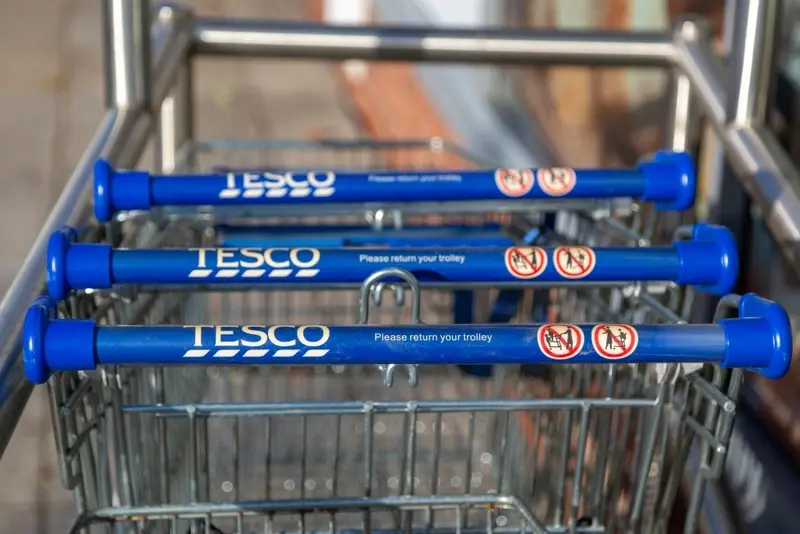
- Supermarket giant warns of ‘incredibly challenging’ market
- Warns inflation is changing shopper behaviour
- Grocer sticking with full year profit guidance
Britain’s biggest grocer Tesco (TSCO) has reported a worse-than-expected drop in first quarter domestic like-for-like sales and warned the market remains ‘incredibly challenging’ with hot inflation starting to alter shoppers’ behaviour, news that sent the shares 0.5p lower to 249.2p.
Though volumes seem to be falling as habits shift in the face of challenged household budgets, there was relief as the supermarkets giant felt confident enough to leave its full year profit and cash guidance unchanged, for now at least.
UK LIKE-FOR-LIKES SLIP
Boosted by price inflation, Tesco’s group like-for-like sales were up 2% year-on-year in the 13 weeks ended 28 May 2022.
However, UK like-for-like sales fell by a slightly worse than feared 1.5% as Covid winner Tesco lapped a tough prior year comparative flattered by the UK’s third pandemic lockdown.
Three year UK like-for-likes, compared with Tesco’s pre-pandemic performance, were an impressive 8.1% ahead.
A further highlight was the forecast-beating 19.4% one year like-for-like sales surge at wholesale business Booker, driven by a strong recovery in catering sales.
‘UNPRECEDENTED’ CONSUMER SQUEEZE
Tesco’s CEO Ken Murphy insisted that whilst the market remains ‘incredibly challenging’, Tesco’s ‘laser focus on value, as well as the daily dedication and hard work of our colleagues, has helped us to outperform the market.
‘Our material and ongoing investment in the powerful combination of Aldi Price Match, Low Everyday Prices and Clubcard Prices is removing the need for customers to shop elsewhere’, he explained.
Murphy then warned ‘we are seeing some early indications of changing customer behaviour as a result of the inflationary environment. Customers are facing unprecedented increases in the cost of living and it is therefore even more important that we work with our supplier partners to mitigate as much inflation as possible.’
Following the update, Shore Capital is sticking with its year to February 2023 forecasts of £2.45 billion worth of adjusted retail operating profit, pre-tax profits of £1.98 billion and earnings per share of 20.6p.
THE EXPERT’S VIEW
Russ Mould, investment director at AJ Bell, commented: ‘The cost of living crisis is largely out of Tesco’s hands and when it comes to the things it can control it is doing well.
‘The Aldi Price Match and Low Everyday Prices initiative is helping to hold off the challenge of the German discounter and by offering lower prices on lots of products exclusively to Clubcard members it is helping foster loyalty among its customer base.
‘To a large extent Tesco is not overly exposed to discretionary spend pressures, bar elements of its wholesaling Booker business and its clothing and general merchandise lines. People might try and economise on their grocery shop, but ultimately they will still need to buy food and toiletries.
Mould stressed that under the leadership of Murphy, Tesco’s business ‘has been streamlined, issues like the pension scheme have been sorted out and its debt has been refinanced. This means a good portion of the cash the company generates can be handed back to shareholders through dividends and share buybacks.
‘One potential concern is the drop in online sales. The rapid adoption of a web-based weekly shop during the pandemic looked to be transforming the economics of grocery delivery, the commerciality of which had long been in question. With fuel prices soaring and orders down, that might now be under threat again.’
DISCLAIMER: Financial services company AJ Bell referenced in this article owns Shares magazine. The author of this article (James Crux) and the editor (Martin Gamble) own shares in AJ Bell.






